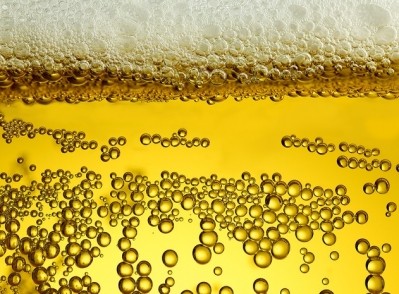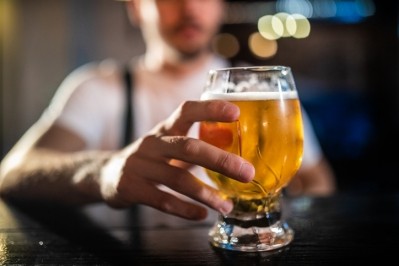Picture warnings on soda offer a ‘promising tool’ in fighting childhood obesity, say researchers

Warnings reduced parental purchases of sugary drinks for their kids by 17%, according to a laboratory ‘mini mart’ study.
"This evidence supports strong, front-of-package warnings to reduce sugary drink consumption in children," say researchers. "We think the paper could be useful for policymakers in the US and globally."
Warnings can cut through the noise
The researchers recreated the shopping experience in ‘UNC Mini Mart’, a 245-square foot naturalistic store laboratory in Chapel Hill, North Carolina. The UNC Mini Mart contains a commercial refrigerator, gondola shelving units, and a checkout stand with a point-of-sale system. Study staff stocked the UNC Mini Mart with 33 types of single-serve beverages, more than 130 types of food items, and 31 household good items: with the choice of beverages based on Nielsen Homescan data.
Single-serve drinks were stocked across 6 beverage categories: fruit drinks/juices, sodas, milks, sports drinks, waters, and ready-to-drink teas.
For every sugary drink sold, there was a comparable non-sugary drink available, sold at the same price. The UNC Mini Mart also sold unflavored bottled water and non-calorically flavored sparkling water.
In their study, 326 parents (25% Black, 20% Latino) of children ages 2 to 12 years old participated in a randomized trial. One group was shown drink labels which had images representing heart damage and Type 2 diabetes. In the second control arm, drinks displayed a barcode.
Participants were instructed to choose one drink and one snack for their child, along with one household good (this shopping list was designed to mask the purpose of the study). After shopping, participants completed a survey about their selections and left with their drink of choice and a cash incentive.
Results the same across populations
The picture warnings led to a 17% reduction in purchases of sugary drinks, with 45% of parents in the control arm buying a sugary drink for their child compared to 28% in the pictorial warning arm.
The warnings also reduced calories purchased from sugary drinks and led to parents feeling more in control of healthy eating decisions and thinking more about the harms of sugary drinks.
The benefits of the picture warnings were similar according to parent characteristics, including race, ethnicity, and socioeconomic status, suggesting picture warnings could work equally well across diverse populations, according to the study. This was interesting to researchers because higher rates of sugary drink consumption and obesity are seen among Black and Latino children compared to non-Latino white children, in part due to structural factors like targeted marketing, say researchers.
“We created this store because we saw a major need for research that tests the impact of policies in a food store setting that is much more realistic. When people make choices about what food to buy, they are juggling dozens of factors like taste, cost, and advertising and are looking at many products at once," says senior author Lindsey Smith Taillie, PhD, assistant professor in the Department of Nutrition at the Gillings School and a member of UNC's Carolina Population Center (CPC).
"Showing that warnings can cut through the noise of everything else that's happening in a food store is powerful evidence that they would help reduce sugary drink purchases in the real world."
Larger studies, however, are needed to see how well warnings work for groups at highest risk of diet-related disease, note the researchers.
A 2020 study noted a similar decline (14.5%) in consumption of sugar-sweetened drinks among students who were shown warning labels on drinks.
Meanwhile, stark tobacco-style health warnings resulted in a 43% decline in sugar-sweetened fruit drinks among LatinX parents, according to a study published last year.
Study: Marissa G. Hall, Anna H. Grummon, Isabella C. A. Higgins, Allison J. Lazard, Carmen E. Prestemon, Mirian I. Avendaño-Galdamez, Lindsey Smith Taillie. 'The impact of pictorial health warnings on purchases of sugary drinks for children: A randomized controlled trial'. PLOS Medicine, 2022; 19 (2): e1003885 DOI: 10.1371/journal.pmed.1003885









